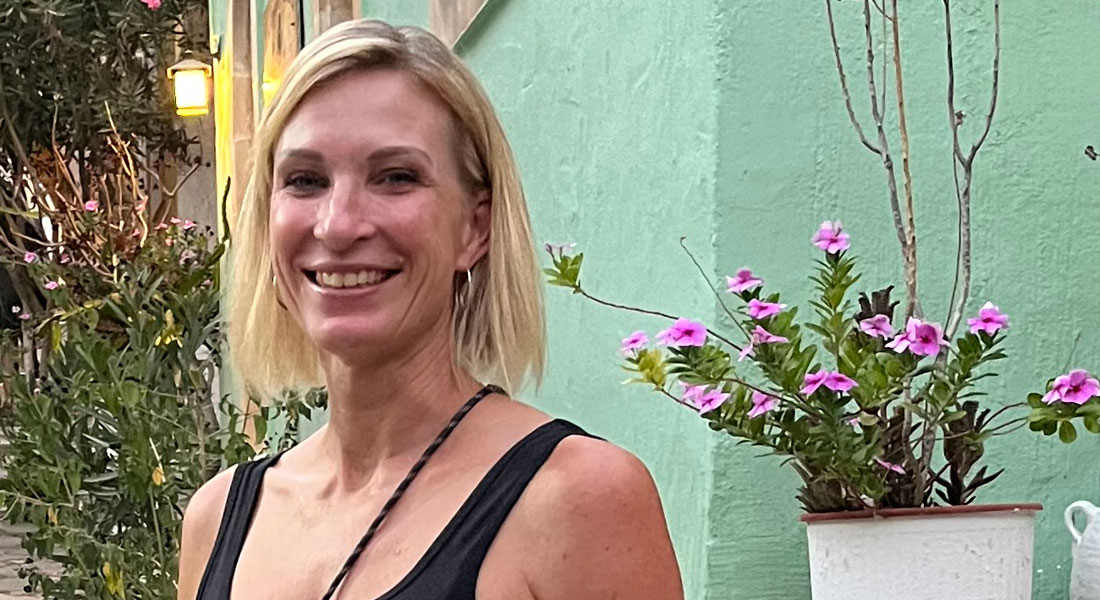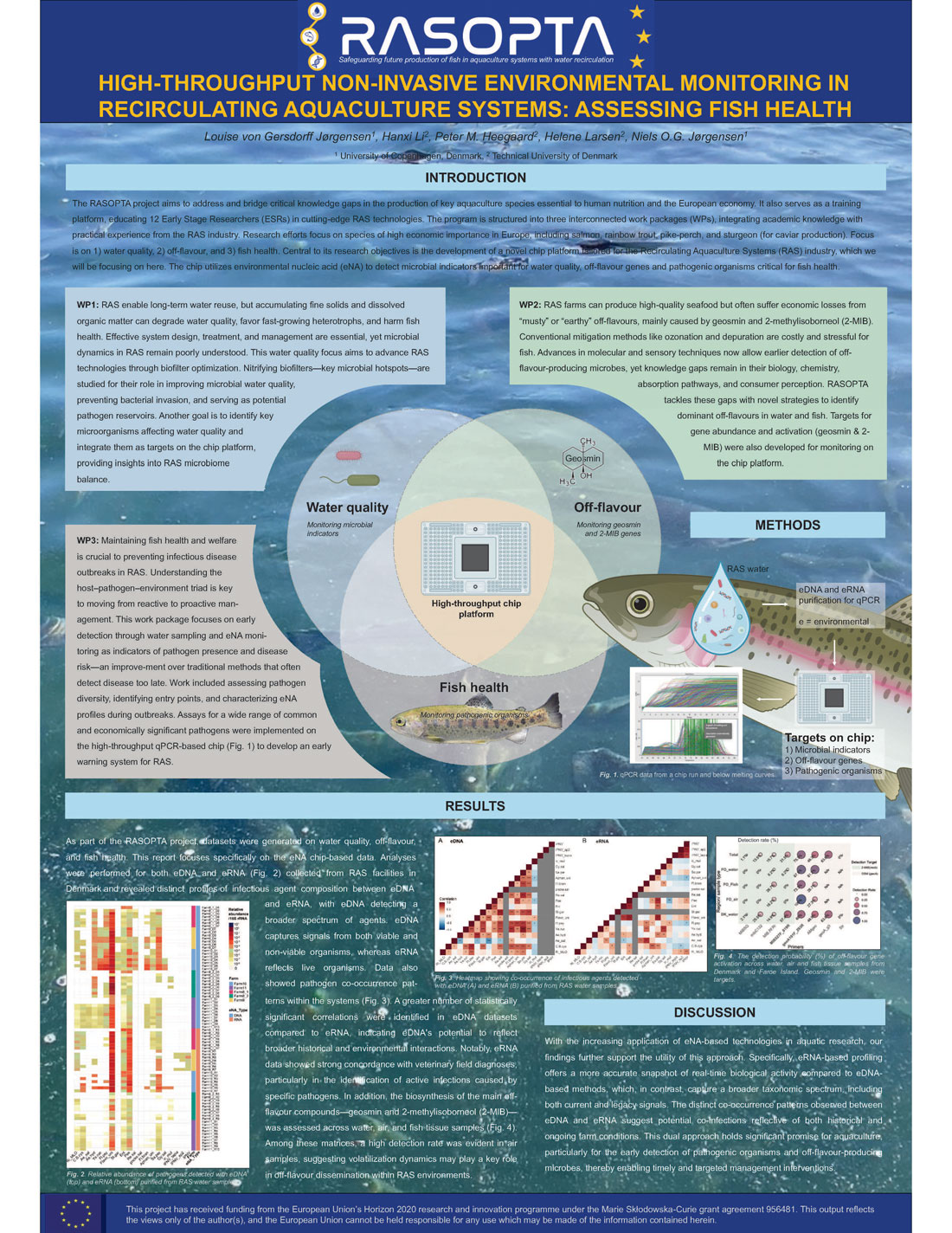RASOPTA Updates 2025
RASOPTA (Recirculated Aquaculture Systems Optimisation for Production and Training in Aquaculture) is an EU-funded Marie Skłodowska-Curie ITN project coordinated by the University of Copenhagen. RASOPTA officially concluded in August 2025, marking the end of its 4-year run
Several PhD students (Early Stage Researchers) have successfully defended their theses. Their work focused on improving water quality, reducing off-flavours, and enhancing fish health in recirculating aquaculture systems (RAS) systems and developing new tools.
Water Quality: Studies on biofilter microbiomes revealed that cleaning moving bed biofilters can unintentionally promote heterotrophic microorganisms, which are undesirable in RAS. A novel method using cork in fish feed helped fecal matter float, improving removal without affecting fish growth.
- Focus: Enhancing microbial and chemical water quality
- Innovations:
Improved biofilter design to better convert toxic ammonia.
Analysis of micro-particles and their biological role in RAS.
Study of how microbes in water affect the fish microbiome. - Goal: Maintain high water quality while minimizing harmful microbial interactions.
Off-Flavour : Identification of microbial hotspots and testing of fish feeds for off-flavour compounds. Isolation of bacteria capable of degrading these compounds was also part of the work.
- Challenge: Earthy off-flavours (e.g., geosmin) reduce fish marketability.
- Solutions:
Identification of hotspots for off-flavour producing microbes.
Testing of new fish feed prototypes to reduce off-flavour content.
Isolation of off-flavour degrading bacteria to biologically eliminate these compounds. - Outcome: Improved taste and consumer acceptance of RAS-farmed fish.
Development of a high-throughput DNA chip to monitor pathogens, water quality indicators, and off-flavour genes (e.g., geosmin, 2-MIB). This chip can process 2304 data points simultaneously, offering rapid diagnostics for aquaculture facilities.
- Purpose: Early detection of water quality issues, diseases, and off-flavour compounds.
Technology: A PCR Fluidigm platform capable of analyzing 48 assays across 48 samples simultaneously (2304 data points). - Features:
Detects pathogenic microorganisms.
Monitors microbial water quality indicators.
Quantifies genes responsible for off-flavours like geosmin and 2-MIB. - Impact: Enables rapid diagnostics and preventive management in RAS facilities. [orbit.dtu.dk]
- Technologies:
Tools to monitor stress levels in fish.
Procedures to prevent spread of pathogens (viruses and bacteria).
Molecular methods to detect parasites on gills and skin. - Integration: These data feed into the DNA chip for real-time health monitoring. [vmri.hu]
 At the EAFP 2025 https://eafp2025.org/ project coordinator Louise von Gersdorff Jørgensen presented the results to stakeholders and fellow scientists. The project findings have been shared continuously in conferences and seminar.
At the EAFP 2025 https://eafp2025.org/ project coordinator Louise von Gersdorff Jørgensen presented the results to stakeholders and fellow scientists. The project findings have been shared continuously in conferences and seminar.

- Aqua2024 in Copenhagen alongside other ITN projects (EATFISH and EASYTRAIN), showcasing joint research efforts.
- A joint event with other EU aquaculture projects was held in Vienna, promoting interdisciplinary collaboration.
